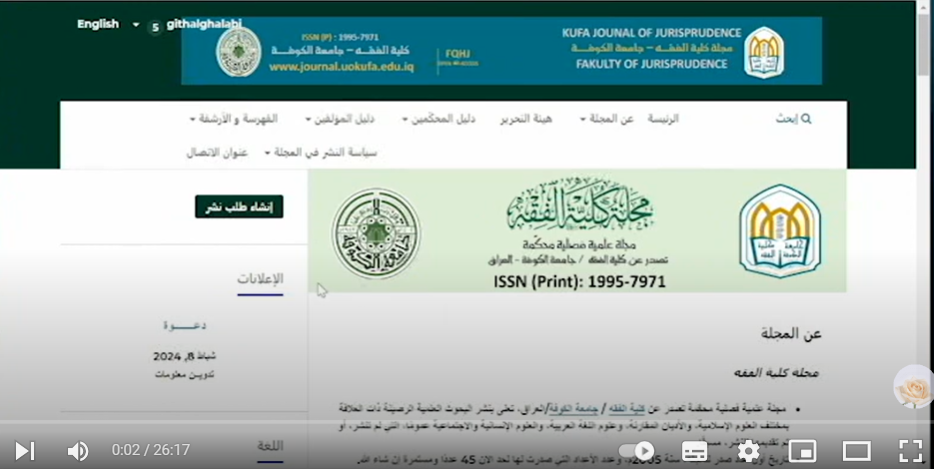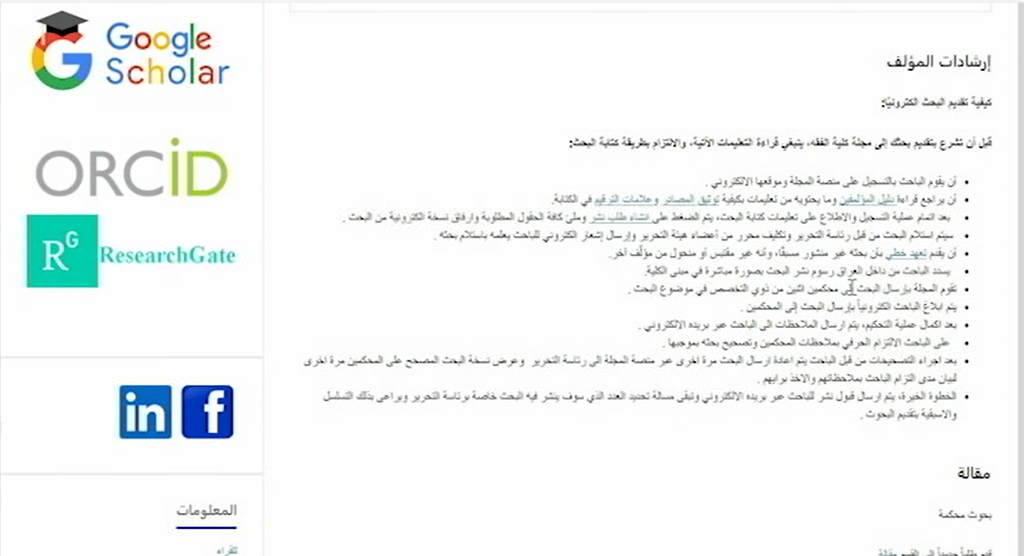تحليل اعتبار أو عدم اعتبار القصد لتحقق موضوع الإعانة على الحرام في فقه العقود الإمامي
Abstract
يوجد خلاف بين الفقهاء الفقه الإسلامي فيما يتعلق بما إذا كانت النية شرطا لتحقيق المساعدة في الحرم وفق الفقه الإسلامي للعقود ، وقد قدم الفقهاء الإماميون مناقشات جدلية مفصلة مفصلة حول هذا الموضوع. عمومًا ، يمكن تقسيم فقهاء الإمامية إلى مجموعتين رئيسيتين وفقًا لموقفهم تجاه تحقيق المساعدة في الحرم. المجموعة الأولى تعتبر النية كشرط لتحقيق المساعدة ؛ تتكون هذه المجموعة من فئتين. ترى الفئة الأولى أن مجرد نية كافية لتحقيق المساعدة ، بينما من وجهة نظر الفئة الثانية ، يجب أن تترافق النية مع ارتكاب الفعل الذي قصده الشخص المساعد. وتعتقد المجموعات الثانية من الفقهاء الإماميين أن النية ليس لها دور في تحقيق المساعدة في الحرم. في نظر بعض مؤيدي هذه النظرية ، فإن مجرد ارتكاب الشرط المسبق للحرام ("مغامرات الحرم") ، أو بمعنى آخر ، إن مجرد معرفة حرام نتيجة فعل المرء يكفي لتحقيق المساعدة في الحرم.
هناك فقهاء إماميون آخرون يعتبرون النية أو التطبيق العرفي (الصدق alorfi) كشرط للمساعدة في الحرم بينما يرى الآخرون مجرد ارتكاب الفعل المساعد كشرط لإعماله.
وغني عن القول أن أساس النظريات المذكورة أعلاه هو القضية الهامة والرئيسية للمساعدة في الحرم. في رأينا ، إن ارتكاب الحرام ليس شرطًا للحصول على سند الملكية ، ولا يمكن أن يكون تحقيق المساعدة مشروطًا بمجرد النية. تستنتج هذه الورقة ، من خلال المراجعة التحليلية للأسباب التي قدمت لكل نظرية مختلفة ، أن أقوى نظرية حول تحقيق المساعدة في الحرم ، من وجهة نظر الفقه الإسلامي الجدلي للعقود ، هي نظرية التطبيق المعتادة.
Keywords: assisting in haram; Islamic jurisprudence of contracts; intention; customary application; Imamia jurisprudence
There exist disagreement among Fiqh (Islamic jurisprudence) scholars with respect to whether intention is a condition for the realization of assisting in haram according to Fiqh (Islamic jurisprudence of contracts) and Imamia jurisprudents have offered considerable detailed argumentative discussions on this subject. Generally, Imamia jurisprudents can be divided into two main groups according to their attitude toward the realization of assisting in haram. The first group considers intention as a condition for the realization of assisting; this group consists of two categories. The first category are of the opinion that mere intention is sufficient for the realization of assisting, while from the second category’s viewpoint, intention must be accompanied with the commission of the act intended by the assisted person. The second groups of Imamia jurisprudents believe that intention has no role in the realization of assisting in haram. In the eyes of some proponents of this theory the mere commission of the precondition of haram (moghadamat alharam) or, in other words, mere knowledge of the haram consequence of one’s act is sufficient for the realization of assisting in haram.
There are other Imamia jurisprudents who consider intention or customary application (alsedgh alorfi) as a condition of assisting in haram while the others see the mere commission of the assisted act as its realization condition.
It goes without saying that the basis of the above said theories is the significant and principal issue of assisting in haram. In our opinion, the commission of the haram consequence is not a condition for application of assisting title, nor can the realization of assisting be conditioned on mere intention. This paper, through the analytical review of the reasons given for every different theory, concludes that the strongest theory about the realization of assisting in haram, from the view point of Islamic argumentative jurisprudence of contracts, is the customary application theory.
الكلمات المفتاحية: المساعدة في الحرم ؛ الفقه الإسلامي للعقود ؛ الهدف؛ تطبيق العرفي. فقه الاماميه











